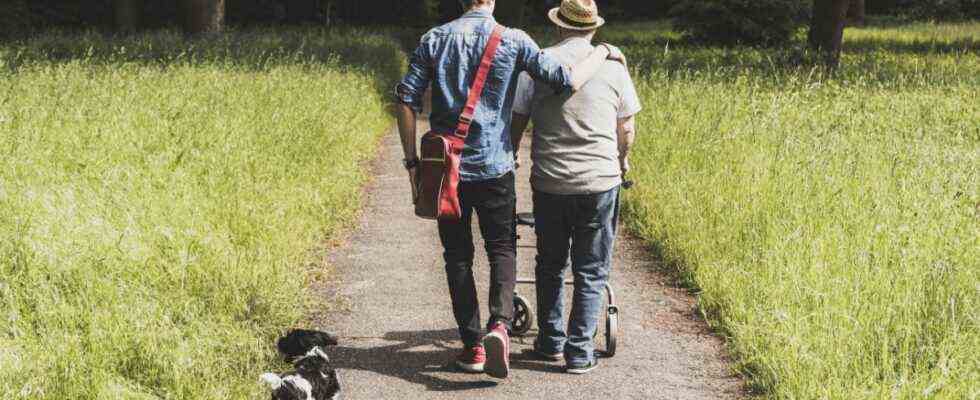What kind of times were those when the public debate was shaped by the wish that “these young people” should please be a little more interested in politics. Against the background of the global climate strikes, which the “Fridays for Future” movement, which is mainly supported by young people, has announced for the coming week, the memory of the supposedly politically disenchanted youth seems like yesterday’s snow that has long since melted.
A lot would have been given back then if underage girls and boys had got the idea to deal with the programs of the candidate parties before an important election and then to convey their political opinion to their parents and grandparents. What kind of a sign would that have been: Young people who are not allowed to vote themselves start a dialogue with their relatives who are entitled to vote about political decision-making. A dream for every social science teacher, a joy for the Federal Agency for Political Education and the democratic community.
But times are changing. In the public debate of the past few days there has been a lack of joy about the democratic spirit in this country; instead, terms such as “manipulation” (image) or “emotional blackmail” (world) when it comes to evaluating the political exchange between the generations.
How could that happen?
The answer can be found on the page enkelkinderbriefe.de on the Internet. There, celebrities like Anette Frier, Joko Winterscheidt, Jan Delay and others have been calling for a while to speak to their grandparents about the federal election: “Because while those under 30 are only 15 percent of those eligible to vote, those over 60 Year-old 38 percent “, calculate the operators of the site and draw the conclusion:” So your grandma and grandpa will decide whether there will be a policy of ‘business as usual’ or a policy of climate-friendly departure. ” That is why grandchildren of all ages should write letters to their grandparents – and ask them to take their interests into account when deciding to vote.
The criticism moves between being overwhelmed and being surprised: In the Time the fear is formulated, The children could be overwhelmed with such actions (“If children and young people need something, then adults who take responsibility for them competently – and: a well-deserved break.”). the world worries the other way around, The grandparents could be taken by surprise by such actions (“The idea of stealing grandparents’ votes is not entirely new.”) and even calls the grandchildren’s letters anti-democratic.
Both concerns are not only astonishingly paternalistic towards the old and the young, they also seem to be more than unjustified – like looking at them Berlin age study proves. This shows that the relationship between grandchildren and grandparents is much freer, healthier and more dialogical than the critics of intergenerational dialogue fear. Not only are the two generations currently spending much more time together than ever before, statistically speaking, they are also much longer and more constructive in exchange. Reports on the study are therefore often titled “The New Grandparents” provided because the reality of life is far removed from the image of the overwhelmed old people who have to be protected from the wishes of the young. Projects like the grandchildren’s letters are therefore not anti-democratic, but an expression of a conversation between the generations, which is definitely desirable – regardless of where you stand politically.
In this respect, there is much to suggest that grandparents and grandchildren negotiate very confidently and democratically in the best sense of the word with one another about how best to vote. However, they are very likely to suffer less damage from this supposedly heated debate than from the consequences of unchecked global warming, which will not only affect grandparents and grandchildren.
(This text is from the weekly Newsletter Environmental Friday you here free of charge can order.)

